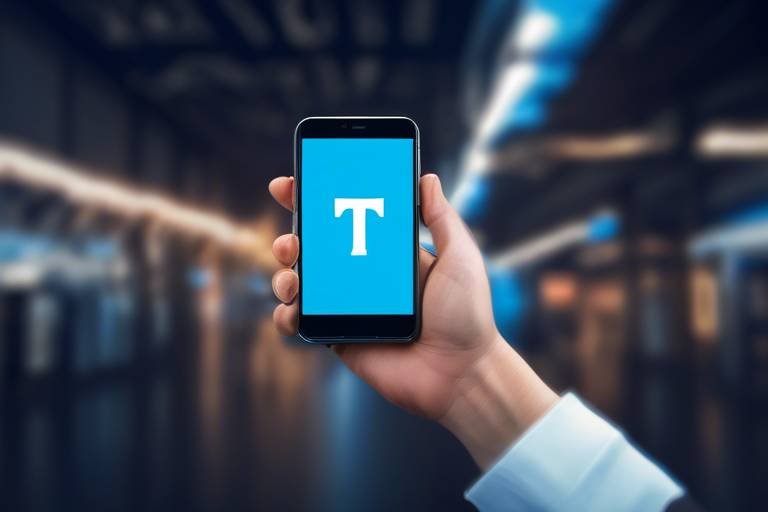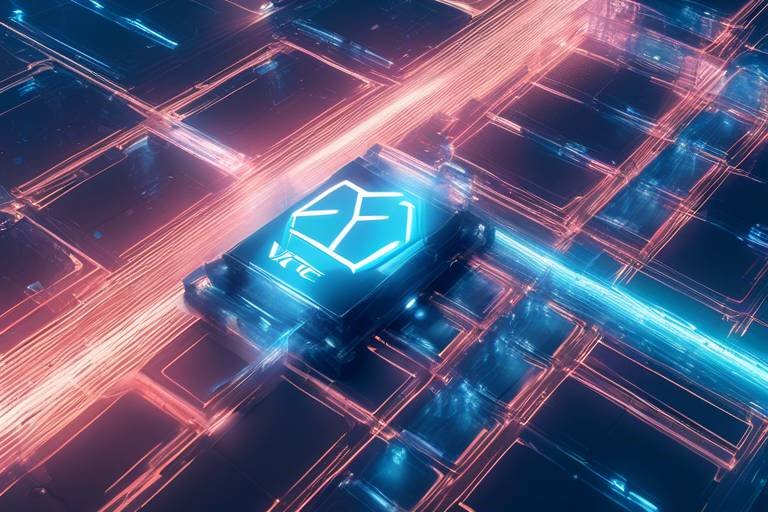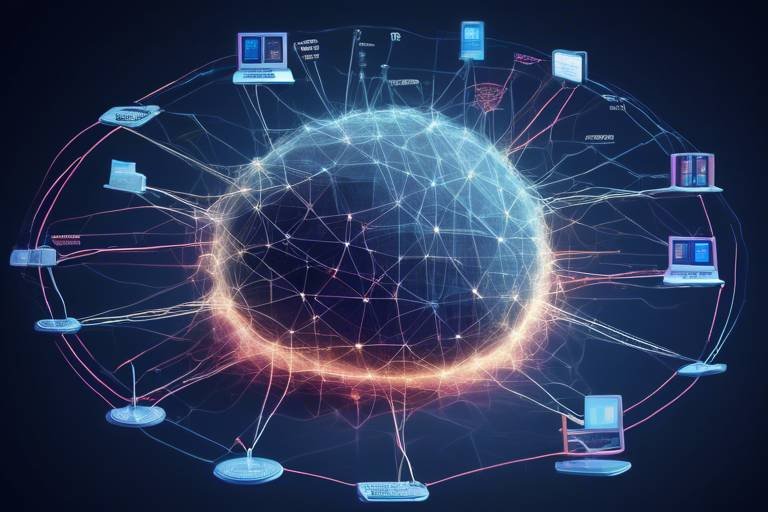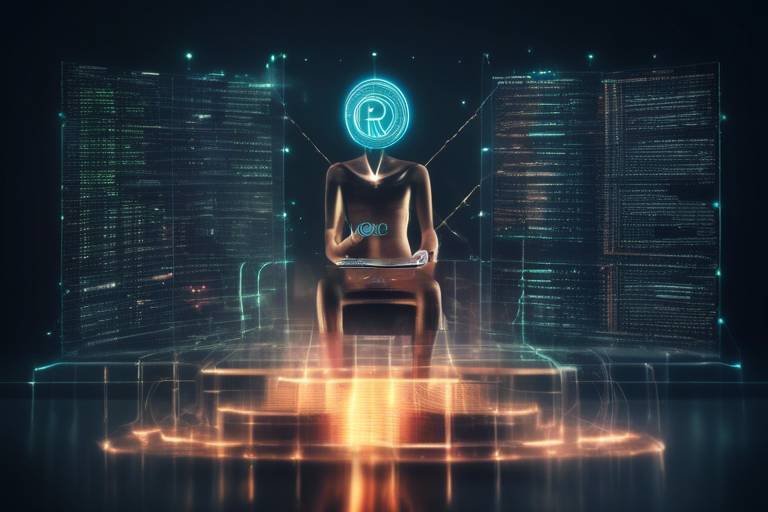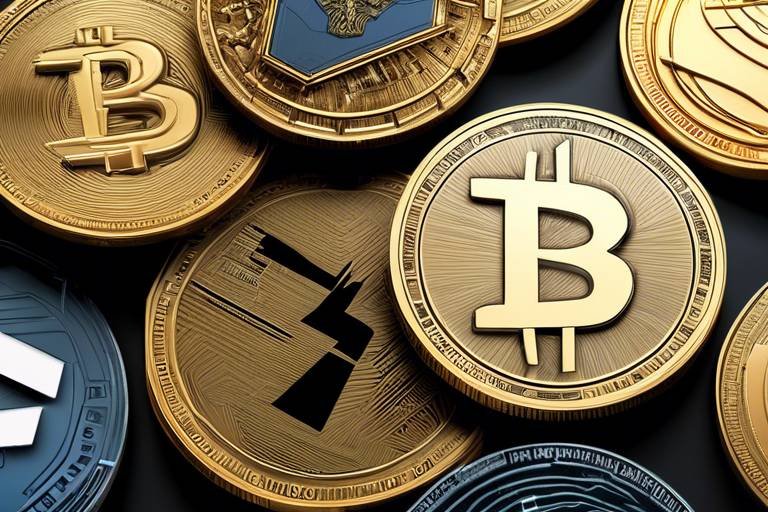OCEAN - Data as an Asset on the Blockchain
In today's digital age, data is often hailed as the new oil, a valuable resource that fuels innovation and drives economic growth. Enter Ocean Protocol, a groundbreaking platform that transforms the way we perceive and utilize data. Imagine a world where your personal data isn't just a collection of bits and bytes but a tangible asset that you can buy, sell, and trade on a blockchain. This revolutionary concept is not just a dream; it's becoming a reality, thanks to Ocean Protocol.
At its core, Ocean Protocol aims to democratize data sharing and monetization, allowing individuals and organizations to maintain control over their data while unlocking its potential value. By leveraging blockchain technology, Ocean Protocol creates a secure, transparent environment for data transactions, ensuring that users can confidently share their data without fear of exploitation. This is particularly important in an era where data breaches and privacy concerns are rampant.
So, how does this all work? Ocean Protocol utilizes decentralized frameworks to treat data as a commodity. This means that data can be bought and sold just like any other asset, opening new avenues for innovation and economic growth. For instance, businesses can access high-quality datasets to enhance their products and services, while data owners can monetize their information, creating a win-win situation for all parties involved.
In essence, Ocean Protocol is not just about data; it's about empowering individuals and organizations to harness the full potential of their data assets. By treating data as an asset on the blockchain, Ocean Protocol is paving the way for a new economy where data privacy, ownership, and monetization are prioritized. As we delve deeper into this innovative concept, we'll explore the intricacies of blockchain technology, the role of smart contracts, and the emergence of decentralized data marketplaces, all of which contribute to the revolution of data as an asset.
Understanding the foundational idea that data can be viewed as a commodity is crucial in today’s world. Just like gold or real estate, data can be bought, sold, and traded within decentralized frameworks. This perspective opens up a plethora of opportunities for innovation and economic growth. Imagine if your browsing history could be turned into a source of income or if your fitness data could help researchers develop better health solutions while you earn from sharing it. The potential is limitless.
Now, let’s take a moment to unpack the technology that makes all of this possible: blockchain. At its essence, blockchain is a decentralized ledger that records transactions across multiple computers in such a way that the recorded transactions cannot be altered retroactively. This ensures security, transparency, and immutability, making it an ideal platform for managing data as an asset. With blockchain, every transaction is visible to all parties involved, creating a trustless environment where data can be exchanged securely.
One of the most exciting features of blockchain technology is the use of smart contracts. These self-executing contracts with the terms of the agreement directly written into code automate transactions and agreements on the blockchain. This means that data exchanges can happen seamlessly and securely, facilitating the monetization of data assets without the need for intermediaries. Imagine a world where you can sell your data with just a click, and the transaction is executed automatically without any hassle.
By using smart contracts, data transactions can occur automatically when predefined conditions are met. This not only reduces the need for intermediaries but also enhances trust in data exchanges. Think of it as a vending machine for data: you input your coins (or in this case, cryptocurrency), and out pops the data you need, all without the need for a cashier. This automation streamlines the process and makes it more efficient for everyone involved.
Moreover, smart contracts can include compliance checks and security protocols, ensuring that data usage adheres to regulations and protects the rights of data owners. This is especially critical in an age where data privacy laws are becoming increasingly stringent. With Ocean Protocol, you can rest assured that your data is not only secure but also used in compliance with the law.
The emergence of decentralized data marketplaces is another exciting development in the world of Ocean Protocol. These platforms allow individuals and organizations to buy and sell data securely, fostering a new economy around data assets. Imagine walking into a marketplace where you can find datasets tailored to your needs, whether for research, marketing, or product development. This accessibility to high-quality data can drive innovation across various sectors.
Ocean Protocol offers numerous advantages that are revolutionizing the data economy. Some of these benefits include:
- Enhanced Data Privacy: Ocean Protocol employs advanced encryption techniques to ensure that data remains private, allowing users to share insights without exposing sensitive information.
- Improved Data Accessibility: The platform democratizes access to data, enabling a broader range of users to benefit from high-quality datasets.
- Monetization Opportunities: Data owners can monetize their datasets, providing a new revenue stream while ensuring they maintain control over their data assets.
Ocean Protocol's advanced encryption techniques are designed to keep data private. This means that users can share valuable insights without exposing sensitive information. In a world where data breaches are all too common, this level of security is paramount.
Another significant advantage of Ocean Protocol is the ability for data owners to monetize their datasets. This opens up new revenue streams while ensuring that they maintain control over their data assets. Imagine being able to profit from your own data, all while knowing that you have the final say on how it is used. This is the future that Ocean Protocol is creating.
- What is Ocean Protocol? Ocean Protocol is a decentralized platform that allows individuals and organizations to share, buy, and sell data securely on the blockchain.
- How does blockchain enhance data security? Blockchain technology provides a secure, transparent, and immutable environment for data transactions, ensuring that data integrity is maintained.
- What are smart contracts? Smart contracts are self-executing contracts with the terms of the agreement directly written into code, automating transactions on the blockchain.
- Can I monetize my data using Ocean Protocol? Yes! Ocean Protocol enables data owners to monetize their datasets while retaining control over their data assets.
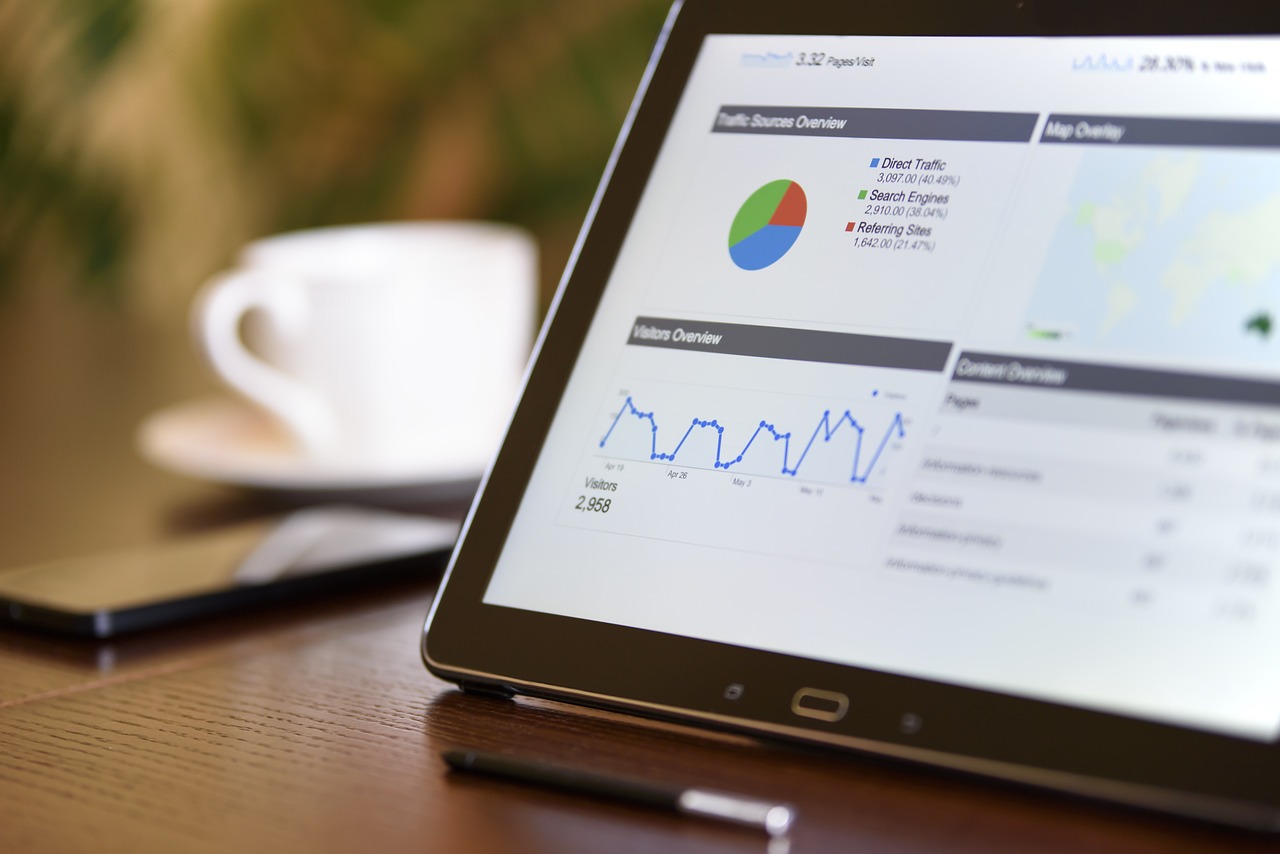
The Concept of Data as an Asset
In today's digital landscape, the notion of treating data as an asset is gaining traction, and for good reason. Just like gold or real estate, data can be bought, sold, and traded, creating a new paradigm in the economy. Imagine if your personal data could earn you money instead of just being a commodity for tech giants. This shift opens up a world of possibilities for individuals and businesses alike, as it allows anyone to leverage their data for financial gain.
Understanding this foundational idea is crucial because it paves the way for innovative frameworks that allow for decentralized data sharing. In traditional systems, data is often siloed, controlled by a few major players who benefit from it while the original creators see little to no reward. However, with decentralized frameworks, individuals can retain ownership of their data while still participating in a broader marketplace. This new model not only fosters economic growth but also encourages innovation by enabling more players to enter the field.
So, what does it mean to treat data as a commodity? At its core, it involves recognizing the inherent value of data. Here are some key aspects to consider:
- Ownership: Individuals maintain control over their data, deciding who can access it and under what terms.
- Monetization: Data can be sold or licensed, providing a revenue stream for data owners.
- Transparency: Blockchain technology ensures that transactions involving data are transparent and verifiable, building trust among users.
By viewing data through this lens, we can start to see it as a valuable resource that can drive growth and innovation. The rise of data marketplaces, powered by blockchain technology, allows for secure and efficient transactions, creating a new economy centered around data assets. This transformation is not just theoretical; it’s happening now, as more platforms emerge to facilitate these exchanges.
Moreover, the implications of this shift are profound. Imagine a world where individuals can monetize their personal data, contributing to a more equitable distribution of wealth. This could lead to a significant change in how we interact with technology and data providers. Instead of being passive consumers, we become active participants in the data economy, empowered to make choices that benefit us directly.
In summary, the concept of data as an asset is not just a trend; it’s a fundamental shift in how we perceive and utilize information in the digital age. By embracing this idea, we can unlock new opportunities for innovation and economic growth, ultimately transforming the landscape of data sharing and monetization.
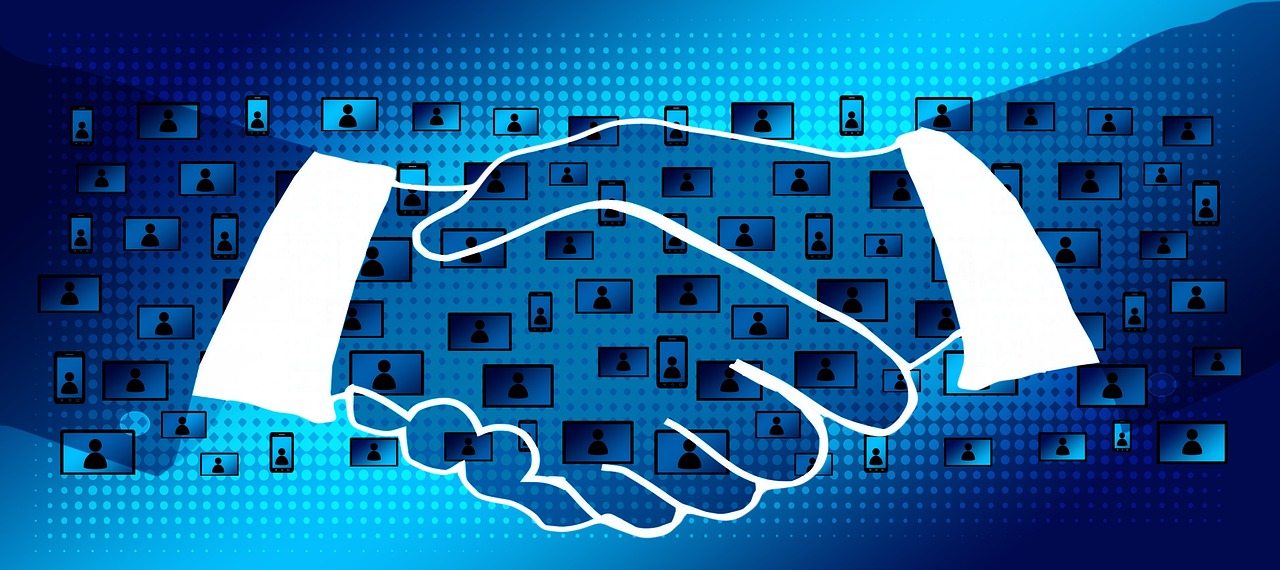
Blockchain Technology Explained
When we talk about blockchain technology, we're diving into a world that is reshaping how we think about data and transactions. Imagine a digital ledger that is not only secure but also transparent and decentralized. This technology acts as a backbone for various applications, including cryptocurrencies, supply chain management, and, of course, the monetization of data through platforms like Ocean Protocol. But what does this all mean? Let's break it down.
First off, the decentralized nature of blockchain is one of its most significant advantages. Unlike traditional systems where a central authority governs data and transactions, blockchain distributes this power across a network of nodes. Each node holds a copy of the entire blockchain, making it nearly impossible for any single entity to manipulate the data. This decentralization fosters a sense of trust among users, as they can independently verify transactions without relying on a third party.
Moreover, blockchain technology guarantees security through cryptographic techniques. Each transaction is recorded in a block, which is then linked to the previous block, creating a chain. This chain is secured by complex mathematical algorithms, making it incredibly difficult for anyone to alter past records. In essence, once data is entered into the blockchain, it becomes immutable. This property is crucial for data as an asset, as it ensures that ownership and transaction history are preserved and can be trusted.
Another key feature of blockchain is its transparency. Every participant in the network can access the same information, which promotes accountability. For instance, if a data owner sells their dataset, both the buyer and seller can verify the transaction details. This transparency not only builds trust but also helps in preventing fraud and disputes, which are common issues in traditional data transactions.
To illustrate the advantages of blockchain, consider the following table that summarizes its key features:
| Feature | Description |
|---|---|
| Decentralization | No central authority; power is distributed across the network. |
| Security | Transactions are secured through cryptographic techniques, making them immutable. |
| Transparency | All participants can access the same information, promoting accountability. |
| Efficiency | Reduces the need for intermediaries, speeding up transactions. |
So, how does this all tie into the concept of treating data as an asset? Well, the very properties of blockchain—security, transparency, and decentralization—make it an ideal platform for managing data transactions. With the rise of smart contracts, data exchanges can be automated, ensuring that agreements are executed as intended without the need for middlemen. This not only streamlines the process but also significantly reduces costs.
In essence, blockchain technology is not just a buzzword; it's a revolutionary framework that is paving the way for a new era in data management. By leveraging its unique features, platforms like Ocean Protocol can create an ecosystem where data is not only shared but also monetized effectively, all while protecting the rights and privacy of data owners. As we continue to explore this fascinating intersection of technology and data, it's clear that the future holds immense possibilities.
- What is blockchain technology? Blockchain is a decentralized digital ledger that records transactions securely and transparently.
- How does blockchain ensure data security? Blockchain uses cryptographic techniques to secure each transaction, making it immutable.
- What are smart contracts? Smart contracts are self-executing contracts with the terms of the agreement directly written into code.
- Can data be monetized on the blockchain? Yes, platforms like Ocean Protocol allow data owners to monetize their datasets while retaining control over them.
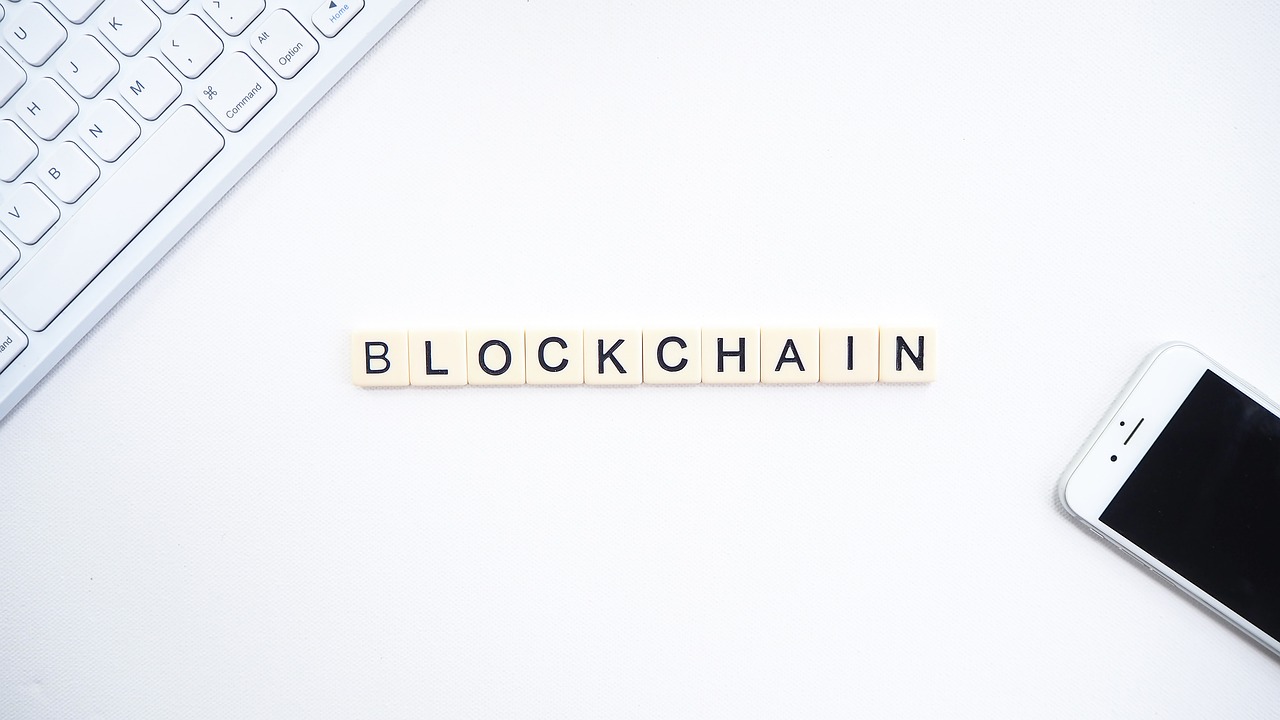
The Role of Smart Contracts
Smart contracts are revolutionizing the way we think about agreements and transactions in the digital world. Imagine a vending machine: you insert money, make a selection, and the machine automatically delivers your snack without the need for a cashier. In the same way, smart contracts operate on the blockchain, executing pre-defined agreements automatically when certain conditions are met. This automation not only streamlines processes but also enhances efficiency and security in data transactions.
When it comes to data sharing and monetization, smart contracts are the backbone of Ocean Protocol. They ensure that all parties involved in a data exchange adhere to the agreed-upon terms without relying on a central authority. This decentralized nature eliminates the risk of fraud and manipulation, fostering trust among users. For instance, if a data provider wants to share their dataset with a buyer, a smart contract can be programmed to release access only after the buyer has made the payment, ensuring that both parties fulfill their obligations.
Moreover, smart contracts can be equipped with compliance checks that align with legal regulations. This feature is particularly important in today’s data-driven world where privacy laws, such as GDPR, are becoming increasingly stringent. By incorporating these checks, smart contracts help protect the rights of data owners while ensuring that data usage complies with relevant laws. This creates a win-win situation: data providers can monetize their assets while buyers can access the data they need without legal complications.
To illustrate the functionality of smart contracts in Ocean Protocol, consider the following table that summarizes their key roles:
| Role | Description |
|---|---|
| Automation | Executes transactions automatically when conditions are met, reducing human intervention. |
| Security | Ensures that transactions are secure and tamper-proof, leveraging blockchain technology. |
| Compliance | Integrates regulatory checks to ensure adherence to laws, protecting data owners' rights. |
In conclusion, the role of smart contracts in Ocean Protocol cannot be overstated. They not only automate and secure data transactions but also facilitate compliance with legal standards, making them an essential component of the data economy. As we continue to explore the potential of data as an asset, smart contracts will undoubtedly play a pivotal role in shaping a decentralized future where data sharing is seamless, secure, and beneficial for all parties involved.
- What are smart contracts? Smart contracts are self-executing contracts with the terms of the agreement directly written into code, enabling automatic execution when conditions are met.
- How do smart contracts enhance security? They operate on the blockchain, which is decentralized and immutable, making it nearly impossible to alter or tamper with the contract once it’s deployed.
- Can smart contracts ensure compliance with data regulations? Yes, smart contracts can include compliance checks that align with legal regulations, helping to protect data owners and ensure lawful data usage.

Automating Data Transactions
In the realm of blockchain technology, the concept of automating data transactions is nothing short of revolutionary. Imagine a world where data exchanges occur seamlessly, without the need for constant human intervention. This is precisely what smart contracts facilitate within the Ocean Protocol ecosystem. By leveraging predefined conditions, these contracts trigger automatic transactions, effectively eliminating the need for intermediaries. This not only speeds up the process but also enhances trust among users, as every transaction is executed in accordance with the agreed-upon terms.
Think of smart contracts as digital vending machines. When you insert the correct amount of money and select your item, the machine automatically dispenses your product. Similarly, when the conditions of a smart contract are met—such as a payment being made or a data request being approved—the data is released automatically. This automation reduces the risk of errors and fraud, creating a more secure environment for data transactions.
Moreover, the efficiency gained through automation allows for a more streamlined experience for all parties involved. For instance, consider a scenario where a researcher needs access to a specific dataset for a study. Instead of waiting days or even weeks for approvals and manual exchanges, the researcher can simply initiate the transaction. Once the criteria are met, the data is released instantly, allowing for faster research and innovation.
Additionally, automation through smart contracts ensures that all parties are held accountable. Each transaction is recorded on the blockchain, which means there is a permanent, immutable record of the exchange. This transparency is crucial in building trust among users, as it provides a clear audit trail that can be referenced in case of disputes. Furthermore, the use of smart contracts can also help in enforcing compliance with regulations, as they can be programmed to include necessary checks that ensure data usage adheres to legal standards.
In summary, automating data transactions via smart contracts not only enhances the efficiency and security of data exchanges but also fosters a culture of trust and accountability in the digital economy. As we continue to explore the potential of Ocean Protocol, it's clear that this innovative approach is paving the way for a future where data can be seamlessly traded and monetized, all while protecting the rights and interests of data owners.
- What are smart contracts? Smart contracts are self-executing contracts with the terms of the agreement directly written into code, facilitating automated transactions on the blockchain.
- How does Ocean Protocol ensure data privacy? Ocean Protocol uses advanced encryption techniques to protect sensitive information while allowing users to share insights securely.
- Can I monetize my data using Ocean Protocol? Yes, Ocean Protocol provides tools for data owners to monetize their datasets while retaining control over their data assets.
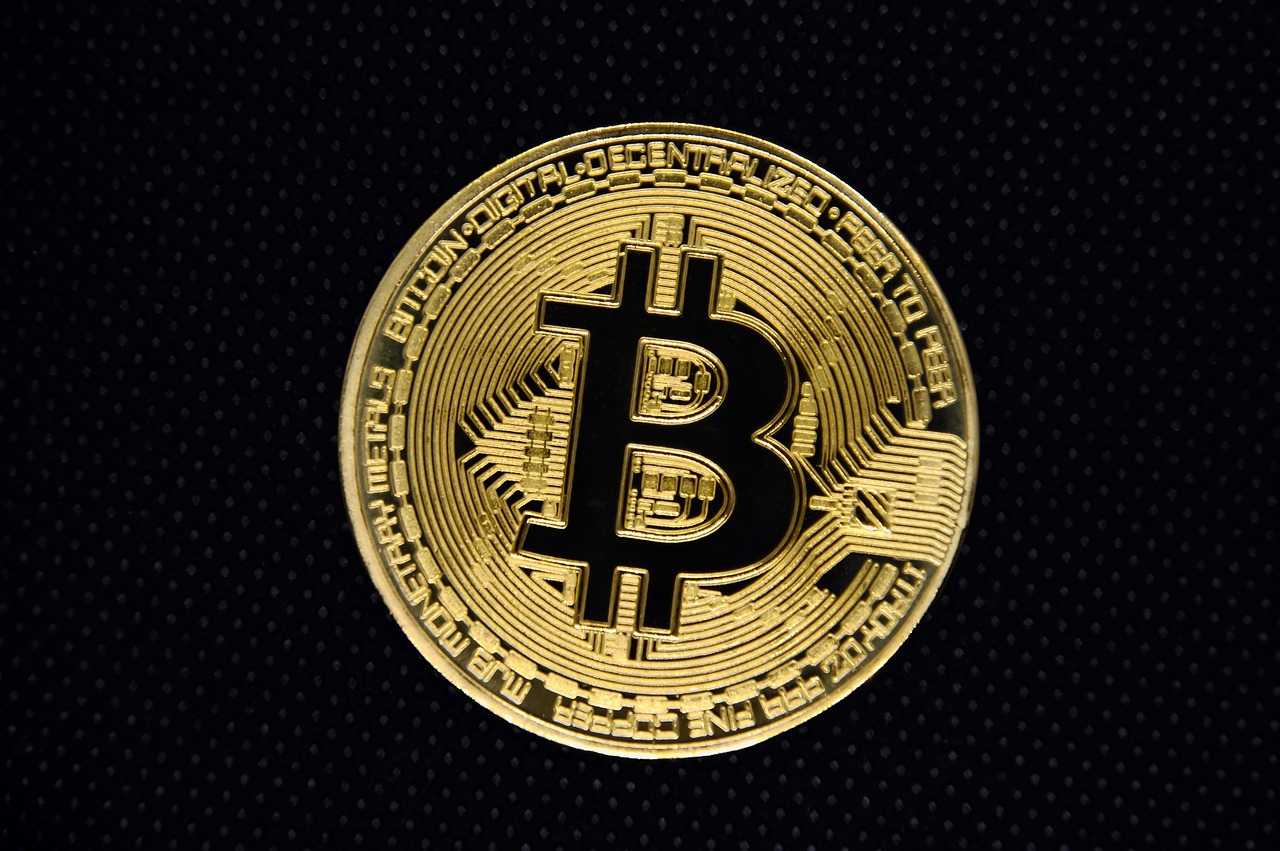
Ensuring Compliance and Security
In the digital age, where data breaches and privacy concerns dominate headlines, ensuring compliance and security in data transactions is paramount. Ocean Protocol addresses these challenges head-on by integrating smart contracts that not only facilitate seamless transactions but also embed essential compliance checks and security measures. Imagine a world where your data can be shared without the fear of it falling into the wrong hands. This is not just a dream; it's the reality that Ocean Protocol strives to create.
By utilizing smart contracts, Ocean Protocol automates the enforcement of regulatory requirements. These contracts can be programmed with specific rules that ensure data is used in compliance with relevant laws and regulations. For instance, if a dataset is subject to GDPR (General Data Protection Regulation), the smart contract can be designed to automatically restrict access to personal data, ensuring that only authorized users can view or manipulate it. This means that data owners can confidently share their information, knowing that their rights are protected.
Moreover, the protocol employs advanced encryption techniques to safeguard data during transactions. This encryption acts as a fortress, preventing unauthorized access and ensuring that sensitive information remains confidential. When data is shared on the Ocean Protocol platform, it is not merely sent in plain text; it is encrypted, making it virtually impossible for anyone without the correct decryption keys to access it. This level of security is crucial in building trust among users and encouraging them to engage in data exchanges.
In addition to encryption, Ocean Protocol incorporates identity verification mechanisms. These mechanisms ensure that all parties involved in a transaction are who they claim to be, adding an extra layer of security. By verifying identities, the protocol mitigates the risk of fraud and ensures that data owners can engage in transactions with confidence. Furthermore, the transparency of blockchain technology means that all transactions are recorded immutably, providing an audit trail that can be referenced if any disputes arise.
In summary, Ocean Protocol's approach to compliance and security is multifaceted and robust. By leveraging smart contracts, advanced encryption, and identity verification, it creates a secure environment for data transactions. This not only protects the rights of data owners but also fosters a culture of trust and accountability in the burgeoning data economy. As more individuals and organizations recognize the importance of these features, we can expect to see a significant shift in how data is shared and monetized in the future.
- What is Ocean Protocol? Ocean Protocol is a decentralized data exchange protocol that enables individuals and organizations to share and monetize data while maintaining control over their data assets.
- How does Ocean Protocol ensure data privacy? Ocean Protocol employs advanced encryption techniques and smart contracts to ensure that data remains private and secure during transactions.
- Can I monetize my data using Ocean Protocol? Yes, Ocean Protocol allows data owners to monetize their datasets, providing new revenue streams while retaining ownership and control.
- What are smart contracts? Smart contracts are self-executing contracts with the terms of the agreement directly written into code, allowing for automated and secure transactions on the blockchain.
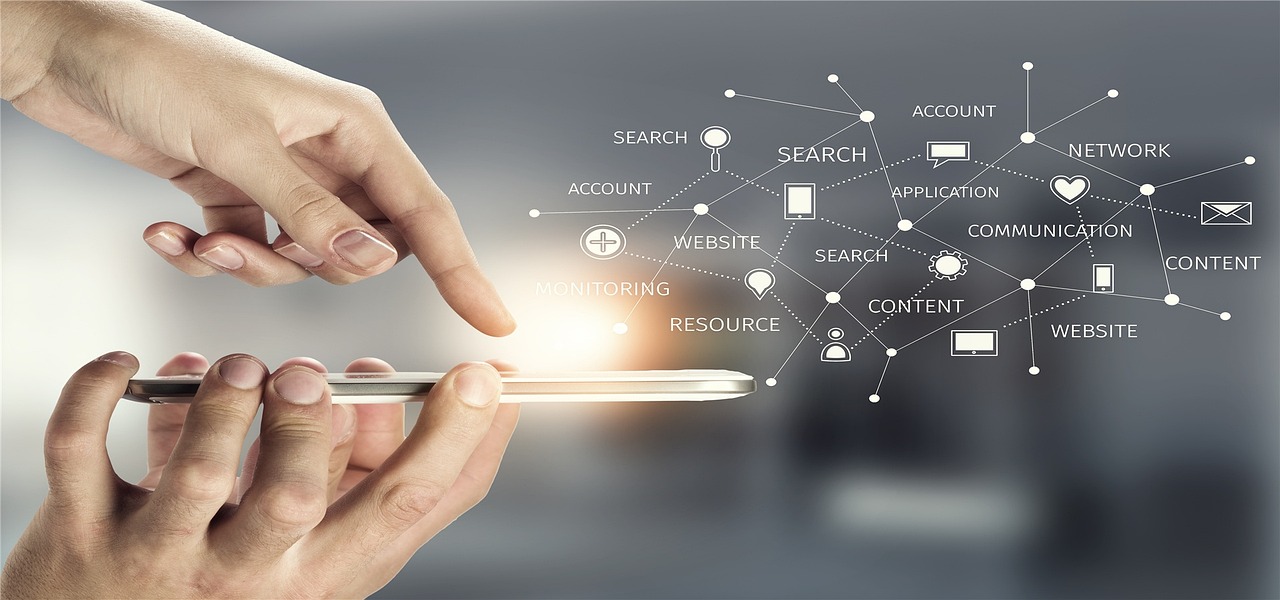
Data Marketplaces and Platforms
The rise of data marketplaces marks a significant shift in how we perceive and utilize data. Imagine walking into a bustling market, where data is the currency being exchanged. Just like fruits and vegetables, data can be bought, sold, and traded, but in a much more sophisticated manner. These decentralized platforms allow individuals and organizations to interact directly, creating a vibrant ecosystem where data flows freely and securely. But what exactly does this mean for the average person or business?
At the heart of these marketplaces lies the concept of decentralization. Unlike traditional data brokers, which often act as middlemen, decentralized platforms empower users to control their own data. This not only enhances transparency but also fosters trust among participants. Buyers can verify the authenticity and quality of the data before making a purchase, while sellers can showcase their datasets without fear of exploitation. Think of it as a farmer's market, where you can meet the producer directly and learn about their products.
One of the most exciting aspects of these data marketplaces is the variety of datasets available. From health records to environmental data, the possibilities are endless. Businesses can tap into niche datasets to gain insights that were previously out of reach. For instance, a startup in the agricultural sector might purchase weather data to optimize crop yields, while a healthcare company could leverage patient data to develop better treatments. The ability to access such diverse data sources opens new avenues for innovation and growth.
However, it's important to note that while these marketplaces offer immense potential, they also come with their own set of challenges. Issues such as data quality, regulatory compliance, and ethical considerations must be addressed to ensure a fair and functional marketplace. For example, ensuring that the data being sold is accurate and up-to-date is crucial. Buyers need to trust that the information they are purchasing will provide the value they expect.
To navigate these challenges, many platforms incorporate robust verification processes and user feedback systems. This helps maintain a high standard of data quality and user experience. Additionally, smart contracts play a vital role in automating transactions and ensuring compliance with regulations. By embedding rules directly into the contract, these platforms can facilitate secure exchanges while protecting the rights of data owners.
In conclusion, the emergence of data marketplaces is revolutionizing the way we think about data ownership and exchange. By providing a secure, transparent, and decentralized environment, these platforms are not only enhancing the value of data but also paving the way for a new economy centered around data assets. As we continue to explore this landscape, the potential for innovation and collaboration will only grow, making it an exciting time to be involved in the data economy.
- What is a data marketplace? A data marketplace is a platform that allows individuals and organizations to buy, sell, and trade data securely and transparently.
- How does Ocean Protocol enhance data privacy? Ocean Protocol uses advanced encryption techniques to protect sensitive information while allowing users to share insights.
- Can I monetize my data? Yes, Ocean Protocol enables data owners to monetize their datasets, providing new revenue streams while maintaining control over their data.
- What role do smart contracts play in data transactions? Smart contracts automate transactions and ensure compliance, making data exchanges secure and efficient.
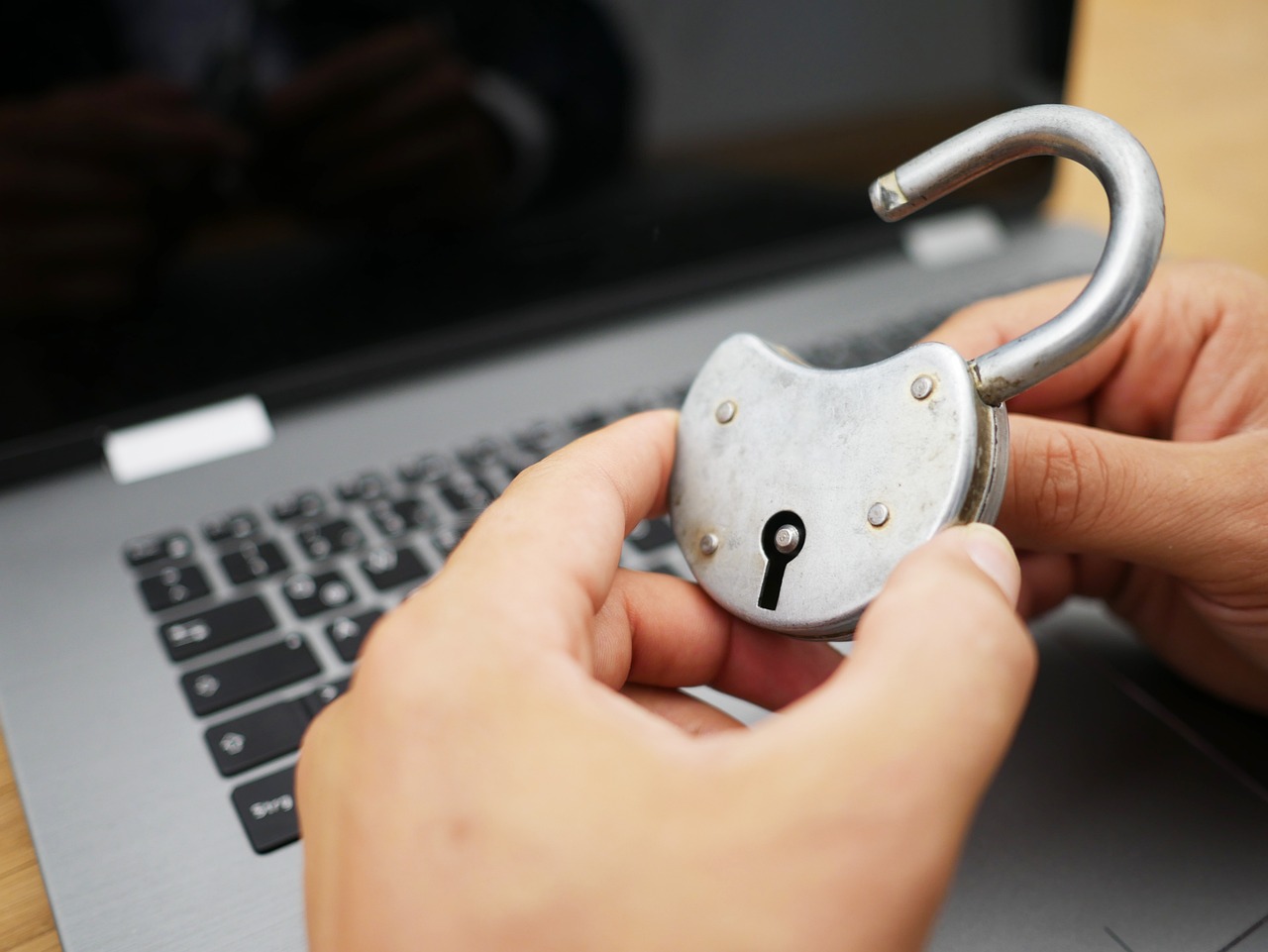
Benefits of Ocean Protocol
This article explores the innovative concept of Ocean Protocol, detailing how data can be treated as a valuable asset on the blockchain, enhancing data sharing and monetization.
Understanding the foundational idea that data can be viewed as a commodity, which can be bought, sold, and traded within decentralized frameworks, opens new avenues for innovation and economic growth.
An overview of blockchain technology, its decentralized nature, and how it ensures security, transparency, and immutability in transactions, making it an ideal platform for managing data as an asset.
Smart contracts automate transactions and agreements on the blockchain, ensuring that data exchanges are secure and efficient, thereby facilitating the monetization of data assets seamlessly.
By using smart contracts, data transactions can occur automatically when predefined conditions are met, reducing the need for intermediaries and enhancing trust in data exchanges.
Smart contracts can include compliance checks and security protocols, ensuring that data usage adheres to regulations and protects the rights of data owners.
Exploring the emergence of decentralized data marketplaces, where individuals and organizations can buy and sell data securely, fostering a new economy around data assets.
Ocean Protocol offers numerous advantages, transforming the landscape of data management and utilization. One of the most significant benefits is enhanced data privacy. With advanced encryption techniques, Ocean Protocol ensures that sensitive data remains secure, allowing users to share insights without exposing their proprietary information. Imagine having the ability to leverage valuable data insights while keeping your sensitive information under wraps—this is the power of Ocean Protocol.
Moreover, the protocol provides monetization opportunities for data owners. By allowing individuals and organizations to sell their datasets, Ocean Protocol creates a new revenue stream while ensuring that owners retain control over their data assets. This is like owning a piece of real estate; you can lease it out while still holding the title. As a result, data owners can benefit financially from their contributions to the data economy.
Additionally, Ocean Protocol fosters improved data accessibility. In a world where data is often siloed and difficult to access, Ocean opens the floodgates, enabling users to tap into a rich reservoir of data. This democratization of data leads to a surge in innovation, as developers and businesses can create new applications and services based on diverse datasets.
To summarize, the benefits of Ocean Protocol can be encapsulated in the following table:
| Benefit | Description |
|---|---|
| Enhanced Data Privacy | Utilizes advanced encryption to protect sensitive information while sharing insights. |
| Monetization Opportunities | Allows data owners to sell datasets, creating new revenue streams while retaining ownership. |
| Improved Data Accessibility | Facilitates access to diverse datasets, promoting innovation and new applications. |
In conclusion, Ocean Protocol not only redefines how we think about data but also empowers individuals and organizations to harness the full potential of their data assets. By enhancing privacy, enabling monetization, and improving accessibility, it paves the way for a more equitable and innovative data economy.
- What is Ocean Protocol? Ocean Protocol is a decentralized data exchange protocol that allows data owners to monetize their data while maintaining control and privacy.
- How does Ocean Protocol enhance data privacy? It uses advanced encryption techniques to ensure that sensitive data is protected while allowing insights to be shared.
- Can anyone sell their data on Ocean Protocol? Yes, anyone can sell their datasets on Ocean Protocol, provided they adhere to the platform's guidelines and regulations.
- What are smart contracts in Ocean Protocol? Smart contracts are self-executing contracts with the terms of the agreement directly written into code, automating data transactions and ensuring compliance.
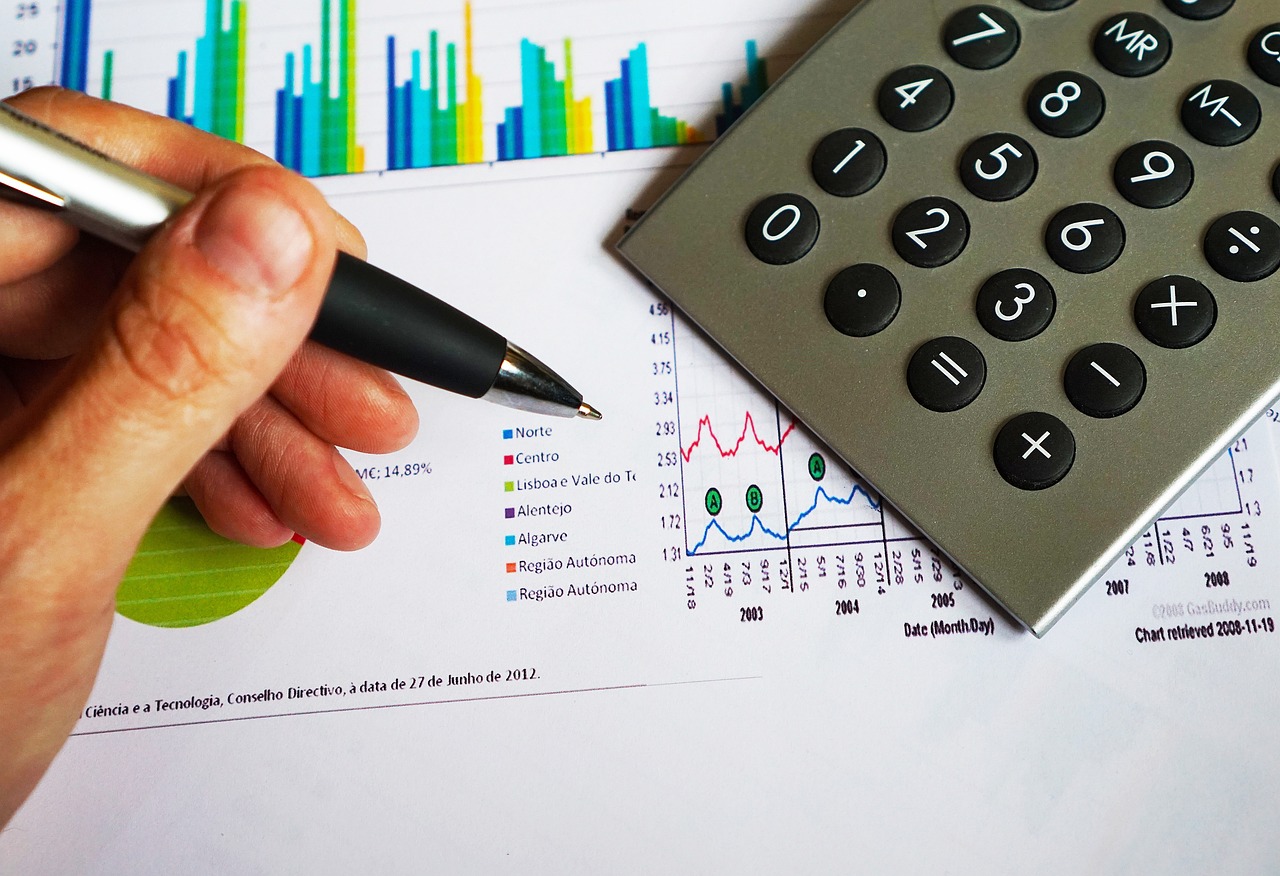
Enhancing Data Privacy
In today's digital landscape, where data breaches and privacy concerns are rampant, data privacy has become a paramount issue. Ocean Protocol addresses this challenge head-on by employing advanced encryption techniques that safeguard sensitive information while allowing users to share valuable insights. Imagine a vault that not only protects your belongings but also allows you to showcase your prized possessions to trusted friends without fear of theft. That's what Ocean Protocol does for your data.
One of the standout features of Ocean Protocol is its ability to ensure that data remains private, even when it's being utilized for analytics or machine learning. By leveraging decentralized technology, the protocol enables users to retain control over their data assets, allowing them to decide who can access their data and under what circumstances. This is akin to having a personal bouncer at a club, ensuring that only select individuals can enter and enjoy the experience while keeping the rest at bay.
Moreover, Ocean Protocol implements privacy-preserving techniques such as differential privacy and homomorphic encryption. These methods allow data to be analyzed without revealing the underlying sensitive information. For instance, businesses can gain insights from customer data without ever directly accessing individual records. This is similar to having a chef who can create a delicious dish from your favorite ingredients without ever revealing the exact recipe. The end result is valuable knowledge without compromising privacy.
Furthermore, the protocol's architecture is designed to facilitate compliance with data protection regulations such as GDPR. This is crucial in a world where regulations are becoming increasingly stringent. Ocean Protocol provides tools and frameworks that ensure data usage adheres to legal standards, protecting the rights of data owners. It's like having a legal advisor on standby, helping you navigate the complex world of data laws while you focus on what you do best.
To illustrate how Ocean Protocol enhances data privacy, consider the following table that outlines the key privacy features and their benefits:
| Privacy Feature | Description | Benefits |
|---|---|---|
| Advanced Encryption | Protects data from unauthorized access | Ensures confidentiality and integrity |
| Differential Privacy | Allows data analysis without exposing individual data points | Enables insights while maintaining user anonymity |
| Compliance Tools | Frameworks to adhere to regulations like GDPR | Reduces legal risks and builds user trust |
In summary, Ocean Protocol not only revolutionizes how we think about data as an asset but also sets a new standard for data privacy. By blending cutting-edge technology with user-centric design, it ensures that data owners can share their insights securely and confidently. With Ocean Protocol, you can have your cake and eat it too—monetize your data while keeping it safe and sound!
- What is Ocean Protocol? Ocean Protocol is a decentralized platform that allows individuals and organizations to share and monetize data securely while maintaining ownership and privacy.
- How does Ocean Protocol enhance data privacy? It uses advanced encryption techniques and privacy-preserving methods, allowing data to be analyzed without exposing sensitive information.
- Can I control who accesses my data? Yes, Ocean Protocol enables data owners to set permissions and control access to their data assets.
- What are the compliance features of Ocean Protocol? The protocol provides tools to help users comply with data protection regulations like GDPR, ensuring legal adherence and protection of data rights.
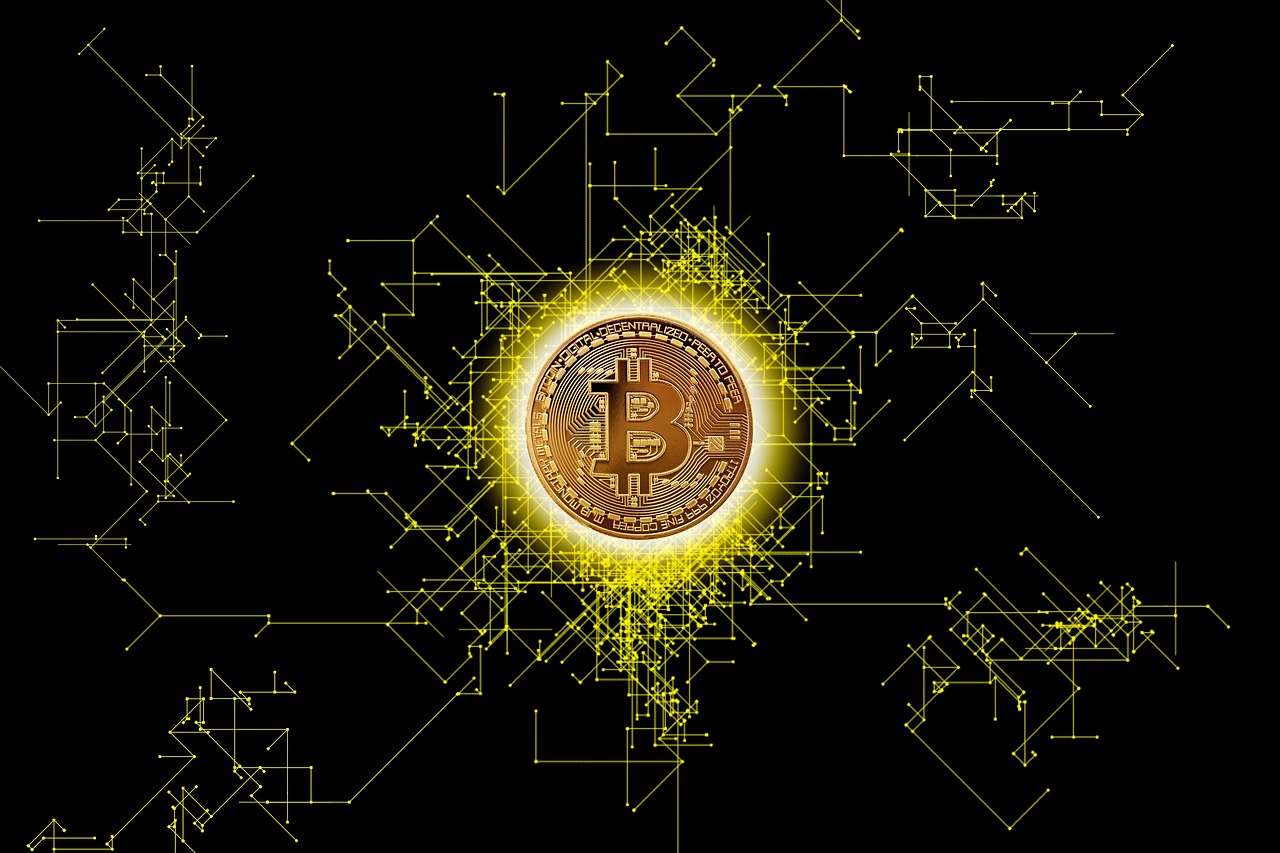
Monetization Opportunities
In today’s data-driven world, the ability to monetize data has become a game changer for individuals and businesses alike. With Ocean Protocol, data owners can transform their datasets into valuable assets, creating new revenue streams while maintaining control over their information. Imagine being able to sell insights derived from your data without ever giving away the data itself! This is the power that Ocean Protocol brings to the table.
One of the most exciting aspects of monetizing data through Ocean Protocol is the flexibility it offers. Data owners can set their own prices and terms for access to their datasets. This means that whether you're a small business with valuable customer insights or a researcher with unique datasets, you can capitalize on your data's worth. Furthermore, the protocol allows for dynamic pricing, where the value of the data can fluctuate based on demand and market conditions, much like stocks in a financial market.
Additionally, Ocean Protocol facilitates the creation of data marketplaces, where data providers and consumers can interact directly. These decentralized platforms eliminate the need for intermediaries, ensuring that data owners receive a higher percentage of the profits. In these marketplaces, users can browse various datasets, analyze their potential value, and make purchases or subscriptions accordingly. This creates a vibrant ecosystem where data is treated not just as a byproduct of operations but as a valuable commodity.
Moreover, Ocean Protocol's use of smart contracts enhances the monetization process. These self-executing contracts automatically enforce the terms agreed upon by the parties involved in a data transaction. For instance, if a company wants to access a dataset for a specific period, a smart contract can be programmed to grant access only for that duration, ensuring compliance and protecting the rights of the data owner. This level of automation not only streamlines transactions but also builds trust among users.
It's also important to note that monetization opportunities extend beyond just selling data. Data owners can engage in data collaborations where they share their data in exchange for insights from other datasets. This kind of collaborative monetization can lead to innovative solutions and discoveries that benefit all parties involved. For example, a healthcare provider might share anonymized patient data with a research organization in exchange for insights that could improve patient care—an arrangement that benefits both sides.
In summary, Ocean Protocol is paving the way for a new era of data monetization. By viewing data as an asset, individuals and organizations can unlock its potential, turning insights into income while retaining ownership and control. This innovative approach not only empowers data owners but also fosters a more equitable data economy where everyone can benefit from the value of data.
- What is Ocean Protocol? Ocean Protocol is a decentralized data exchange protocol that allows data owners to monetize their data while maintaining control over it.
- How can I monetize my data using Ocean Protocol? You can list your datasets on decentralized data marketplaces, set your pricing, and engage in transactions directly with buyers.
- What are smart contracts? Smart contracts are self-executing contracts with the terms of the agreement directly written into code, ensuring secure and automated transactions.
- Is my data safe when using Ocean Protocol? Yes, Ocean Protocol employs advanced encryption techniques to protect your data and ensure privacy during transactions.
Frequently Asked Questions
- What is Ocean Protocol?
Ocean Protocol is a decentralized platform that allows individuals and organizations to share and monetize their data while retaining control over it. It treats data as a valuable asset on the blockchain, enabling secure and efficient transactions.
- How does data become an asset on the blockchain?
Data is treated as an asset on the blockchain by utilizing smart contracts and decentralized marketplaces. This allows data to be bought, sold, and traded securely, similar to physical commodities, opening up new economic opportunities.
- What role do smart contracts play in Ocean Protocol?
Smart contracts automate data transactions and agreements on the blockchain. They ensure that data exchanges are secure and efficient, eliminating the need for intermediaries and enhancing trust among users.
- Can data transactions be automated?
Yes! With smart contracts, data transactions can occur automatically when specific conditions are met. This reduces delays and ensures smoother operations in data sharing and monetization.
- How does Ocean Protocol ensure data privacy?
Ocean Protocol employs advanced encryption techniques to maintain data privacy. This allows users to share insights and analytics without exposing sensitive information, ensuring that data remains confidential.
- What are the monetization opportunities with Ocean Protocol?
Data owners can monetize their datasets through Ocean Protocol by selling access to their data or insights while still retaining ownership. This creates new revenue streams and incentivizes data sharing.
- Are there any compliance measures in place?
Absolutely! Smart contracts can include compliance checks to ensure that data usage adheres to regulations and protects the rights of data owners, making the platform secure and trustworthy.
- What are decentralized data marketplaces?
Decentralized data marketplaces are platforms where individuals and organizations can buy and sell data securely. Ocean Protocol facilitates these marketplaces, fostering a new economy around data assets.






